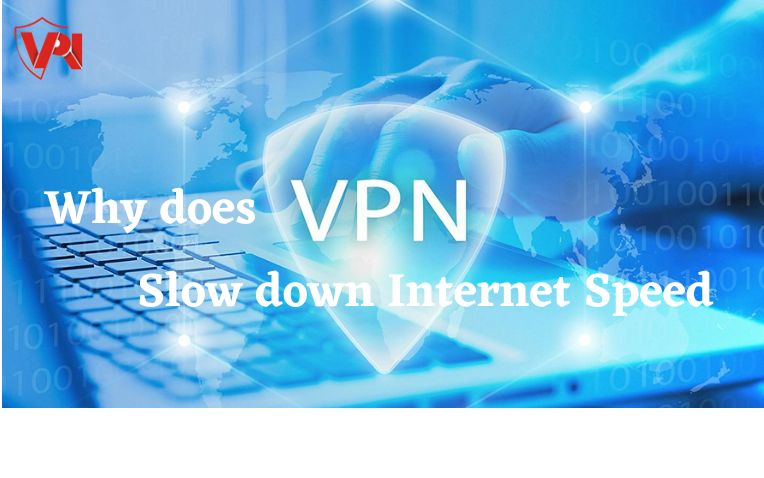Did you observe slow internet speed while using a VPN? The reason is when you use a VPN, the data travels through an encrypted tunnel which is an extra step that is being performed and increases the latency time.
In other words, the data does not travel directly to the destination server but through the VPN server, which means if your VPN server performs slowly, you will get slow internet speed.
In that case, you should use premium VPN services like IPVanish VPN, ExpressVPN, NordVPN, Surfshark VPN, etc., because they eliminate bandwidth throttling to enable you highest speed internet.
When you try to ping your destination server, you will notice the high TTL(time-to-live) if using a normal VPN. It is important to mention that Ping determines the total data packet travel time between the source and destination server. So, I reiterate that you use a good VPN that will not slow down your internet speed.

Reasons Why VPN Slow Down Internet Speed
Several other factors slow down the internet speed:
Server Location
When you are in another location or want to use the VPN server of a distant location, you will get slow internet speed because the server’s location affects your internet speed and at long distances, the packet needs a lot of time to travel.
So, sometimes it slows down the connection speed. Therefore, you should select the nearest location while connecting a VPN which is a good option for increasing the internet speed.
Server Load
If many users access a single VPN server, users will get slow speed because the server gets overloaded with many requests. So, to overcome this problem server should have sufficient resources to handle many requests at a time which premium VPN services like IPVanish VPN, ExpressVPN, NordVPN, etc. offer.
Weak Encryption
Another reason for the slow speed is the data encryption. If you use weak encryption with a free VPN, it requires more time to send data packets.
The best solution to eliminate the problem is to use fast-speed encryption like Advanced Encryption Standard (AES) or DES.
Popular VPNs like IPVanish VPN, ExpressVPN, NordVPN, and Surfshark use AES encryption.
Wireless Connection
When you use a Wifi internet connection, the data packets travel in the form of a radio signal which is comparatively slower than a normal internet connection.
So, this is another factor that may slow down the internet speed when using a VPN. Hence, using the VPN on internet connections with an Ethernet port or Wired connection is advisable to keep the internet speed high.
Disable Antivirus Software
Antivirus runs its services and processes in the system/device, which consumes many resources and slows down the internet speed. However, a good antivirus is necessary to keep threats, trojans, malware, and worms away.
Background Apps
Many users use multiple apps on their devices, and these apps run background services that consume a lot of resources, bandwidth, and power. As a result, this slows down the device and internet speed. So, close all the unnecessary applications to get good internet speed when using a VPN.
What is the Average Internet Speed With a VPN?
It depends on your internet connection. If you have a 100mbps speed internet connection, you should get at least 15-20mbps downloading internet speed.
How to Boost up VPN Internet Speed?
The following are the steps to speed up internet speed when using a VPN:
- Connect to the Server with less number of connections
- Always choose Strong Security Encryption
- Select the nearest possible location
- Restart the Device
- Prefer using a Wired Internet Connection
- Install Latest Updates
Wrap up
To sum up, we have discussed why a VPN slows down the internet speed, average internet speed, and how to boost the internet speed when using a VPN. Try implementing the abovementioned solutions and drop a comment below if you have any problems.